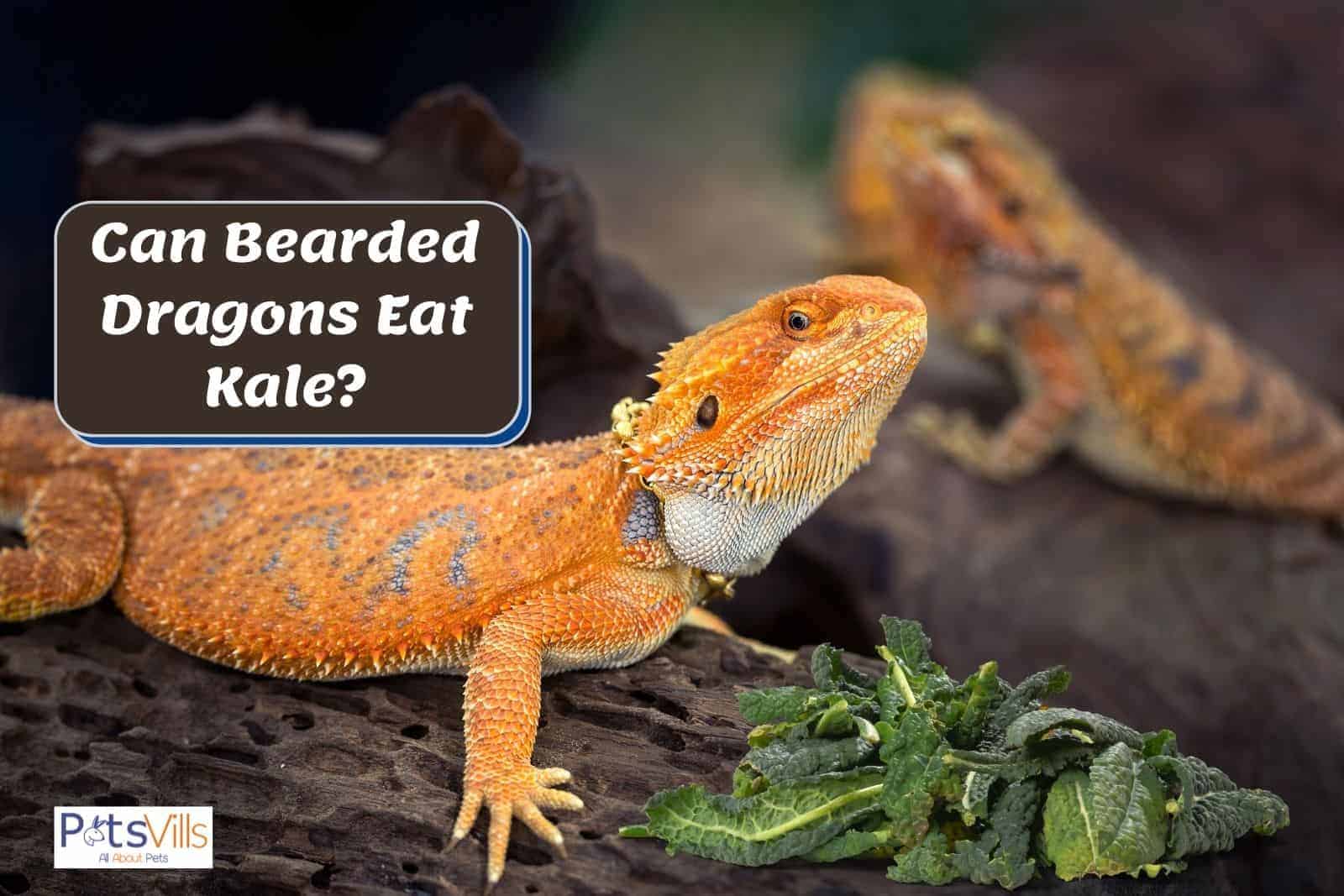Since it’s a superfood, bearded dragon lovers have to ask, “can bearded dragons eat kale?”
After all, adult beardies need varied diets with plenty of different vegetable options that may include anything from a bit of broccoli to zucchini, so kale seems like a no-brainer.
Kale and kale leaves do have their benefits but it is also important to assess the risks before deciding on adding this veggie to the bearded dragon diet.
It is also best to follow through with a nutrition specialist or veterinarian to be well informed about your nutrition plan.
READ MORE: Can Bearded Dragons Eat Cabbage?
Table of Contents
Can Bearded Dragons Eat Kale?
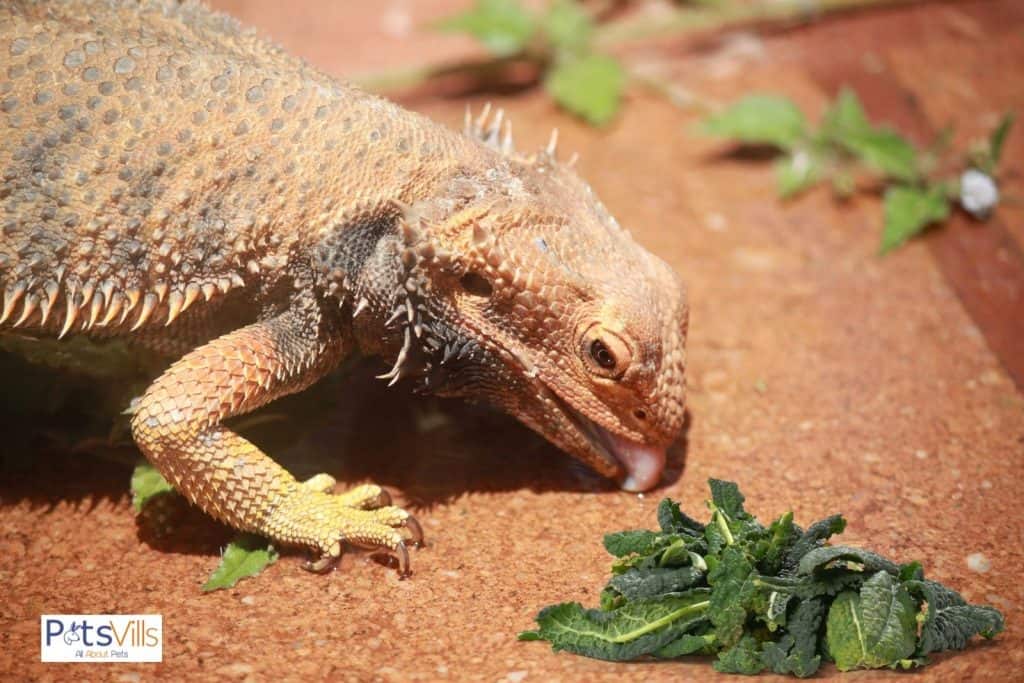
Yes, bearded dragons can eat fresh kale regularly so long as it is washed and free of pesticides. Kale is high in calcium and it can be beneficial to the overall balanced diet of the bearded dragon.
While kale can be a staple food, it should also be part of a varied diet. After all, the bearded dragon diet should be omnivorous and should contain the correct balance of insects, safe fruits, a salad mix of green leafy vegetables.
Health Benefits of Eating Kale
- Kale is a great source of calcium for bearded dragons and can help with their bone density, growth, and reproduction. Even better, kale has a high calcium to phosphorus ratio of 1:0.4.
This means that there is less phosphorus to bind with calcium. Phosphorus blocks the absorption of calcium, leading the hypercalcemia or metabolic bone disease.
This is why beardie foods are often dusted with calcium powder or another suitable high-quality calcium supplement.
- There is a myth that kale is high in oxalates and should only be fed rarely. In fact, kale only contains 0.02 grams of oxalic acid per 100 grams.
Compare this to the 0.97 grams in spinach or the 0.45 grams in collard greens. High oxalates levels should be avoided because, like phosphorus, oxalic acid binds with calcium and causes a calcium deficiency that can cause severe health issues.
- Kale contains multiple essential nutrients like vitamin C and vitamin K which can help with the overall immune system and also reduce inflammation
- Kale has a high water content and is low in calories which can keep the pet dragon hydrated while ensuring it stays a healthy weight.
- The carbohydrates in kale can help fuel their energy, but it is low in sugar, which can cause health issues such as obesity, digestive problems, or tooth decay.
It is high in antioxidants that support the immune system.
Risks of Eating Kale for Bearded Dragons
Like sweet potato, kale contains high levels of Vitamin A. Too much of this can lead to Vitamin A toxicity. Some of the symptoms include dehydration, weight loss, and swelling.
TRY CHECKING: Can Bearded Dragons Eat Arugula?
Can Bearded Dragons Eat Kale Everyday?
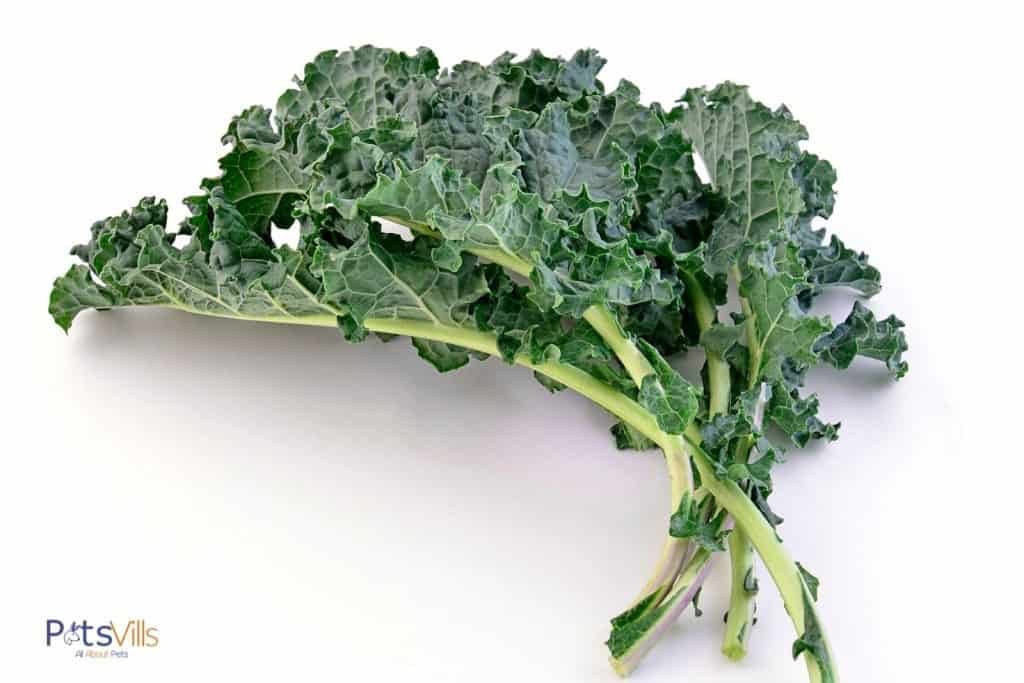
To be on the safe side, it’s best not to feed your bearded dragon kale on a daily basis.
Still, kale is safer than many other vegetables, and so it can be fed a couple of times a week, or every second week should be fine.
About 0.7 ounces or 20 grams should be a safe amount to give your bearded along with other safe leafy greens.
However, it is important to know about the different types of kale before feeding.
READ MORE: Can Bearded Dragons Eat Zucchini?
What Types of Kale Are Safest for Bearded dragons?
- Common Curly Kale
Can bearded dragons eat Curly kale? Curly Kale is high in vitamin A which is dangerous to beardies as it could lead to Vitamin A toxicity.
Also, it is higher in oxalates than other types of kale, having 27.8mg per 100g of food. This means curly kale should be fed less often and in more moderation.
- Lacinato Kale
Can bearded dragons eat Lacinato kale? Beardies can eat lacinato kale, which is also known as black kale or Tuscan kale.
Lacinto kale has lower amounts of oxalates, so can be fed slightly more than curly kale.
- Red Russian Kale and Other Types of Kale
Russian or red kale, also called baby kale is rich in vitamin A but also has vitamin C and other nutrients that can be beneficial to the bearded dragon.
Meanwhile, Siberian kale is rich in vitamins A, C, and B6. It is also rich in manganese and folate and it could be potentially beneficial when served in the right amounts.
These types of kale, in addition to purple kale, have lower amounts of oxalates. However, certain types of Russian Kale are more goitrogenic, so feed Russian and Siberian Kale sparingly.
Learn more about bearded dragon diet and find complete lists on what else to feed them and what NOT to feed them in our brand-new book!

FAQs
Can baby bearded dragons eat kale?

Baby dragons can eat kale since it is high in calcium and low in phosphorus. However, the majority of their diet should come from a variety of insects and fresh leafy greens should only be offered for them to snack on throughout the day. As they become older, the ratio of leafy greens to insects should be reversed.
However, kale should not be a staple food for baby bearded dragons because of its danger to their thyroid gland.
Can bearded dragons eat kale seeds?
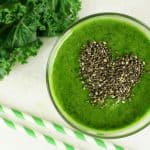
No, bearded dragons do not have the iron-lined digestive tract to dissolve hulls and even if they do pass the seed hulls, there are still chances that these seeds can cause impaction. So it is advised that bearded dragons should stay away from any kinds of seeds as these could be harmful and possibly fatal.
What should a bearded dragon eat daily?
As an owner of a pet bearded dragon, you should strive to give the beardie a balanced diet meal every day. 80% of an adult bearded dragon’s diet should be leafy greens topped up with a small number of safe fruits like blueberries, the rest should be small feeder insects such as Dubai roaches, earthworms, and crickets.
Conclusion
Kale is fine as a weekly staple food for bearded dragons, although one needs to keep in mind the total amount of oxalates, vitamin D3, and phosphorus before adding kale.
Some types of kale, such as curly kale, are better fed once or twice a month.
Consulting with a veterinarian that has experience with exotic pets can help you decide exactly how to add kale to benefit the dragon. For the most part, baby bearded dragons should be fed kale extremely sparingly.
References
- “Bearded Dragons – Diseases.” 2021. Vca_corporate. 2021. https://vcahospitals.com/know-your-pet/bearded-dragons-diseases#:~:text=MBD%20is%20generally%20caused%20by,vitamin%20D%20in%20their%20skin).
- Jules. 2016. “Kale – High or Low Oxalate?” Fibro Free Foodie. August 9, 2016. http://www.fibrofreefoodie.com/2016/08/09/kale-high-or-low-oxalate/.
- Ness, Robert. n.d. “CALCIUM & PHOSPHORUS CONTENT of SELECTED FOODS 1.” Accessed July 22, 2021. http://nessexotic.com/docs/Calcium.pdf.
- Phillips, Quinn. 2018. “Do You Need to Give up Cruciferous Veggies When You Have Hypothyroidism? | Everyday Health.” EverydayHealth.com. August 15, 2018. https://www.everydayhealth.com/hs/hypothyroidism/do-you-need-to-avoid-cruciferous-vegetables/#:~:text=Researchers%20have%20found%20that%20collard,in%20the%20journal%20Nutrition%20Reviews..
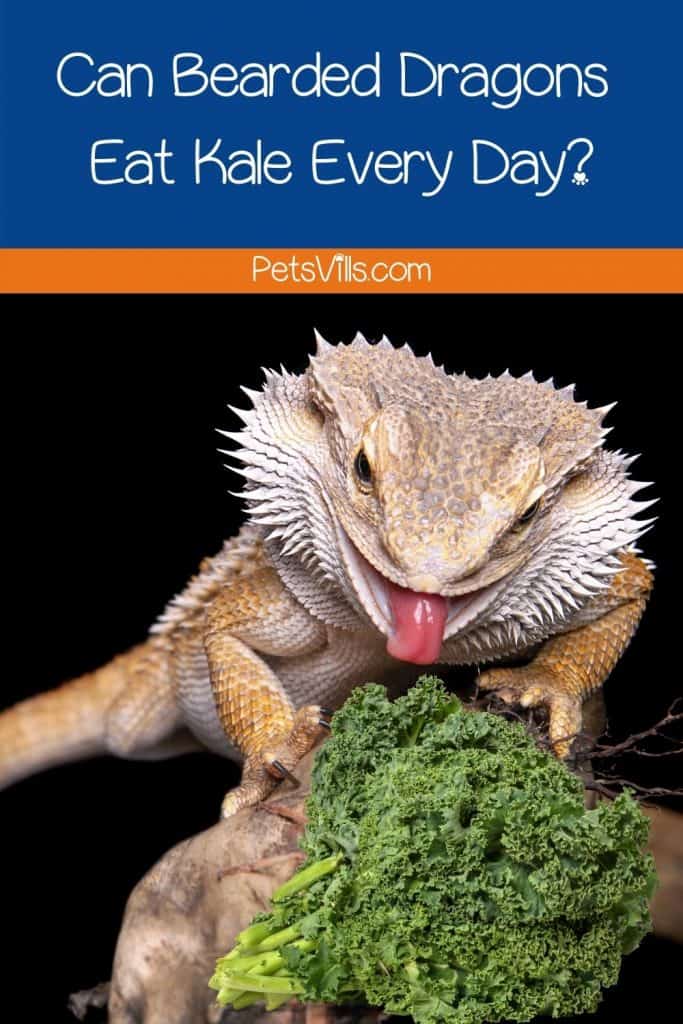
Can bearded dragons have kale? Please share your thoughts on this topic below!

Andreea is a very passionate content creator and her purpose is to provide you with the most interesting articles, while constantly discovering new facts. She’s been freelance writing for the past five years and has created numerous articles and educational materials while managing her own mom blog.
Read her Latest Articles
Find her on
FACEBOOK AND Instagram

